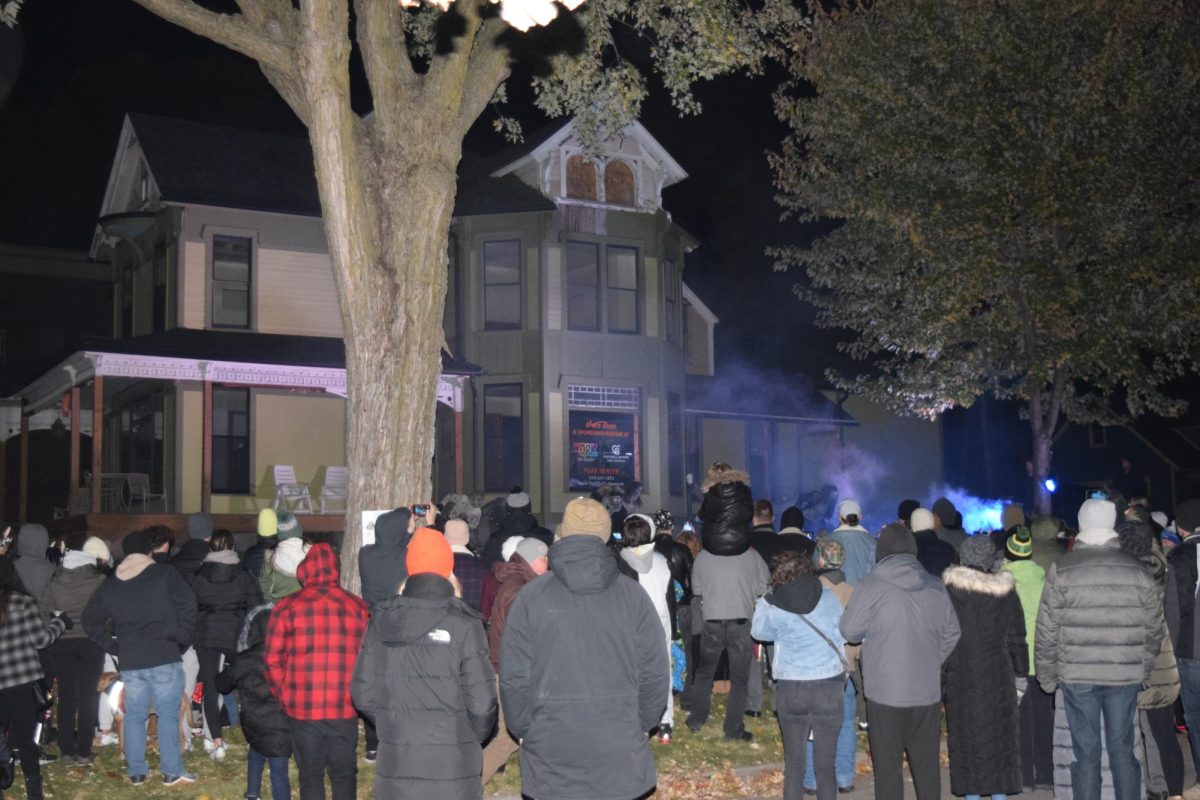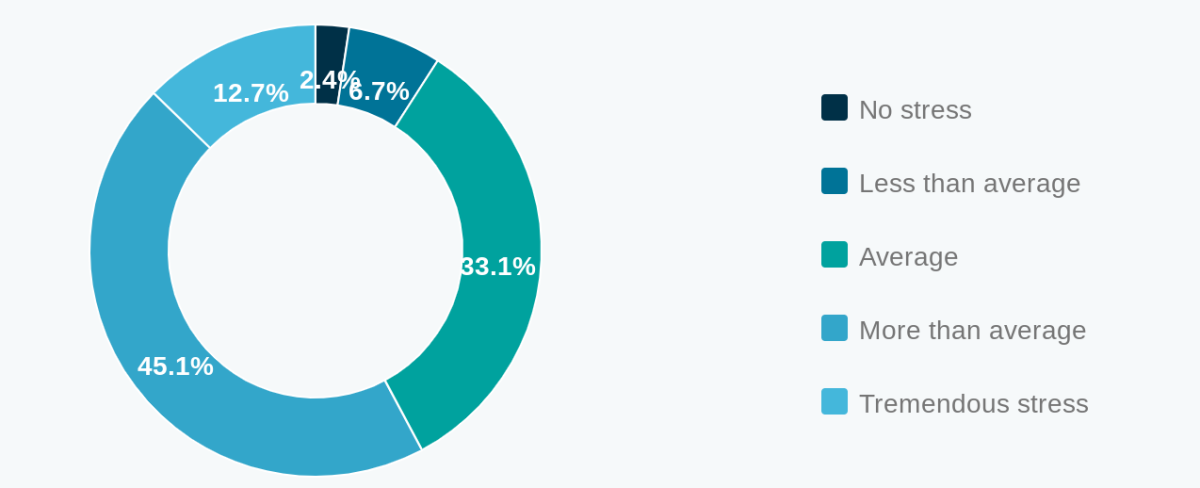Dealing with burnout is normal, especially for high school students at the beginning of the school year. Catherine Wilwerding (‘26) says, “The way the school system works, students are bound to get burnout. Homework takes away our creative freedom, no matter what you do. We are made to be common people in the workplace.”
According to The Mayo Clinic, burnout is defined as a state of complete physical, mental, and/or emotional exhaustion. Some symptoms include fatigue, sleep issues, getting sick more often, headache, concentration issues, and a loss of interest.
Burnout happens when one is overwhelmed by the world around them, such as their school work, job, or even the stress of social life. Burnout can lead to reduced performance and exhaustion, or if gone on long enough, it can lead to symptoms of depression. Savannah Givens (‘24) says, “I feel like I’ve been feeling burnout since 7th grade. It’s like it never stops.”
As a junior who works both days on the weekends and has homework almost every night, sometimes I just want to hang out with a friend or sit down and cuddle with my dogs. Most days I have to force myself to do my homework, but the payoff after seeing a good test score go in makes me feel 100% better about the late nights and early morning.
Sometimes burnout is inevitable. Do you have a big test coming up? Are you in an advanced or AP class? Are you just swamped with schoolwork? Are you in multiple after-school activities? It’s okay! Burnout is normal. If someone hasn’t told you you’re doing great! Feeling like you have no time to relax or hang out with friends can be rough on your mental health.
You may also wonder about the difference between stress and burnout. Stress is more along the lines of loss of energy, while burnout is loss of motivation, ideals, and hope. While stress can lead to anxiety, burnout can lead to depression and detachment from reality. While both stress and burnout are common in high school students, it’s important to understand the difference between the two so that you can find ways to cope.
Now, there are ways to cope with burnout. First, realize the signs of burnout in the starting stages. Burnout might show up much earlier than you realize. Maybe you are overly exhausted every day, or you just can’t find the motivation to finish homework. Then, try and reverse the damages, finding time to relax (self-care is key) and working out a schedule where you have downtime and aren’t flooded with work. And lastly, build up your resilience to burnout by taking care of your physical and mental health all the time.
Manejar el síndrome del quemado: Cómo manejar el síndrome del quemado mental al comienzo de un nuevo año escolar por Addie Shaefer, Escritora
Experimentar el síndrome del quemado es normal, especialmente para los adolescentes al comienzo de un nuevo año escolar. Catherine Wilwerding (‘26) dice, “La manera en que funciona el sistema escolar, los estudiantes van a quemarse. La tarea nos quita nuestra libertad, sin importar lo que pase. Estamos hechos para ser la gente común en los lugares de trabajo.”
Según el Mayo Clinic, se define el síndrome de quemado como un estado de total agotamiento físico, mental, y/o emocional. Algunos síntomas incluyen el cansancio, los problemas de dormir, enfermarse más frecuentemente, el dolor de cabeza, los problemas de concentración, y una pérdida de interés.
El síndrome de quemado ocurre cuando alguien se siente inundado por el mundo, como su tarea, trabajo, o aún el estrés de la vida social. El quemado puede causar una reducción en la habilidad de funcionar en la vida y agotamiento, o si dura por demasiado tiempo, puede causar los síntomas de la depresión. Savannah Givens (‘24) dice, “Me he sentido quemada desde el séptimo grado. Es como nunca termina.”
Como una junior que trabaja todos los días durante el fin de semana y tiene tarea casi cada noche, a veces sólo quiero pasar tiempo con una amiga o sentarme y acurrucar a mis perros. La mayoría de los días, tengo que esforzarme para hacer mi tarea, pero vale la pena trabajar tarde por las noches y temprano por las mañanas después de ver una nota buena en un examen.
A veces el síndrome del quemado es inevitable. ¿Tienes un examen grande pronto? ¿Tomas las clases avanzadas o AP? ¿Tienes un montón de tarea? ¿Participas en varias actividades extracurriculares? ¡Está bien! El síndrome del quemado es normal. Si alguien no te ha dicho, ¡haces un trabajo tremendo! Sentirte sin el tiempo para relajarte o pasar tiempo con amigos puede afectar tu salud mental.
Es posible que te preguntes sobre la diferencia entre el estrés y el síndrome del quemado. El estŕes es más la pérdida de energía mientras el quemado es la pérdida de la motivación, los ideales, y la esperanza. Mientras el estŕes puede causar la ansiedad, el quemado puede causar la depresión y la indiferencia a la realidad. Mientras el estrés y el quemado son comunes en los estudiantes en el colegio, es importante entender la diferencia entre los dos así que puedes encontrar maneras para seguir adelante.
Hay maneras para manejar el síndrome del quemado. Primero, date cuenta del quemado en las etapas tempranas. El quemado podría aparecer más temprano que te das cuenta. Quizás estés cansadísimo todos los días o te falta motivación para terminar la tarea. Entonces, trata de revertir los daños por encontrar el tiempo para relajarse (el autocuidado es esencial) y crear un horario con tiempo sin obligaciones ni mucho trabajo. Por fin, aumenta tu resiliencia al quemado por cuidar tu salud física y mental todo el tiempo.
Spanish translation courtesy of Mrs. Carruthers-Green, World Languages teacher


![Ava Vaske smiles into the camera before her cancer diagnosis.
[Photo Courtesy The Des Moines Register]](https://dowlingcatholicpost.com/wp-content/uploads/2023/10/ava.webp)






















![All are welcomed to admire the Dowling Catholic Ofrenda that will be on display in the Narthex for just over a month, starting October 24th. [Artwork by Carter Coppola]](https://dowlingcatholicpost.com/wp-content/uploads/2023/10/Ofrenda-927x1200.jpg)











